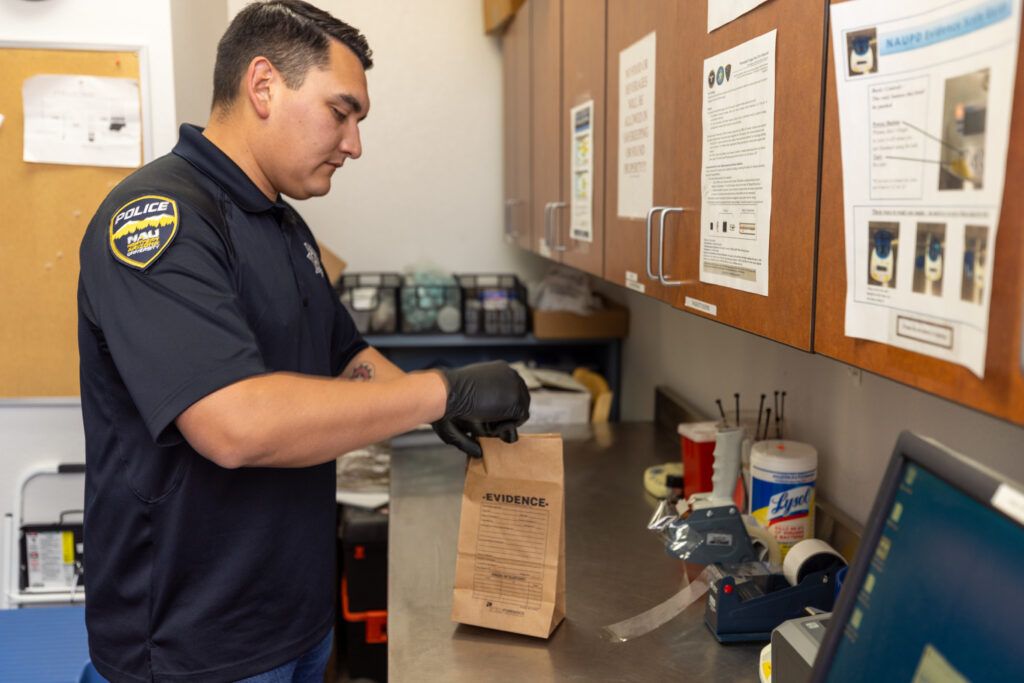Criminal Justice
If you’re driven to promote fairness, understand systems of justice, and serve your community, Criminal Justice at NAU offers the tools to make a real impact.
Criminal Justice explores how societies respond to crime, enforce laws, and deliver justice. From policing and courts to advocacy and reform, this path prepares you to lead with purpose and contribute to safer, more equitable communities.

What is Criminal Justice?
Criminal Justice is the study of how laws are enforced, how justice is administered, and how society responds to crime. You’ll learn how legal systems work, why people commit crimes, and how to create fair and effective solutions. NAU’s program blends theory with real-world insight to prepare you for careers that uphold justice and serve the public good.
What you'll study
Coursework in Criminal Justice covers legal systems, criminology, and public safety. You might study:
- Criminal law and justice systems
- Research methods and criminological theory
- Juvenile justice and rehabilitation
- Forensics and criminal investigations
- Legal ethics and courtroom procedures
- Policy analysis and advocacy
NAU’s programs include hands-on experience through internships, applied projects, and opportunities to connect with professionals in law enforcement, legal support, and community organizations.
Career possibilities
Criminal Justice graduates work in roles that uphold public safety, support legal processes, and promote social equity. You might work in roles supporting law enforcement and public safety, legal advocacy and paralegal support, corrections and probation, government and nonprofit organizations, or investigative and forensic services. Graduates with degrees in Criminal Justice pursue job titles like:
- Police officer
- Detective
- Correctional officer
- Forensic scientist
- Paralegal
- Federal agent
Criminal Justice degrees at NAU
NAU offers Criminal Justice and Law programs designed to help you pursue careers in law, public service, or community advocacy.
FAQs: Criminal Justice degree
Do I need to become a police officer or lawyer?
No. A Criminal Justice degree prepares you for a wide range of roles, from victim advocacy and investigations to policy analysis and nonprofit work.
How is Criminal Justice different from Criminology?
Criminology studies why crime happens. Criminal Justice focuses on what happens after, how society responds through policing, legal processes, and rehabilitation.
Can this degree prepare me for a legal career?
Yes. Criminal Justice is an excellent foundation for law school or careers in legal support such as paralegal work or judicial administration.
Will I get real-world experience?
Yes. You’ll have access to internships, field placements, and community partnerships in a variety of justice-related settings, from police departments to tribal agencies.
What makes NAU’s Criminal Justice program unique?
NAU’s Criminal Justice program connects classroom learning with real-world impact. You’ll gain insight into how justice systems operate in Arizona’s diverse communities, from rural and border regions to tribal nations, and have opportunities to intern with state, federal, and tribal agencies.
